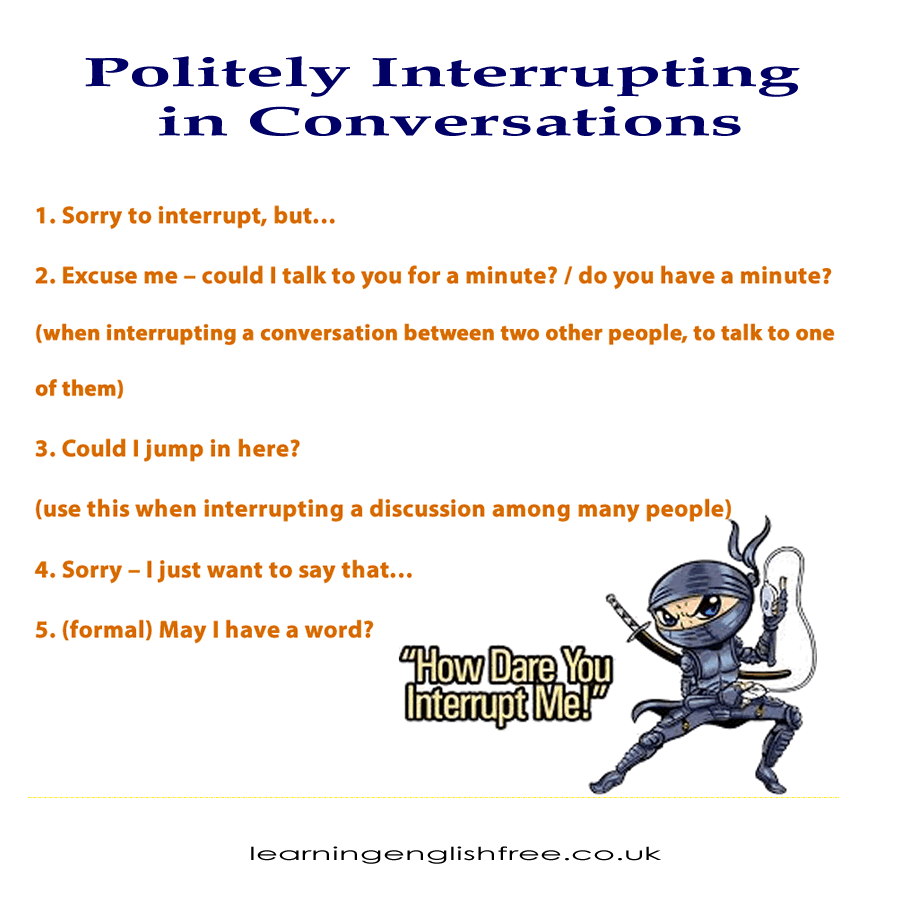The Essentials of Politely Interrupting in Conversations

Hello! Today's English lesson is focused on a very practical and essential skill: how to interrupt someone politely. In many social and professional situations, you may need to interject or add to a conversation. Doing this politely is crucial in English-speaking environments. We'll go over several phrases you can use to interrupt someone respectfully, ensuring your interjections are well-received.
Common Phrases for Polite Interruptions
-
"Sorry to interrupt, but..."
- Meaning: Apologizing before making your point.
- Sentence: "Sorry to interrupt, but I think I have a solution to the problem."
-
"Excuse me, could I talk to you for a minute? / Do you have a minute?"
- Meaning: Politely asking for someone's attention.
- Sentence: "Excuse me, could I talk to you for a minute about the schedule?"
-
"Could I jump in here?"
- Meaning: Requesting to join a group discussion.
- Sentence: "Could I jump in here? I have some thoughts on this topic."
-
"Sorry - I just want to say that..."
- Meaning: Apologizing and then stating your opinion.
- Sentence: "Sorry - I just want to say that I agree with your point."
-
(Formal) "May I have a word?"
- Meaning: Formally requesting a private conversation.
- Sentence: "May I have a word about the report you submitted?"
For any further questions or to share your experiences with polite interruptions, visit our Facebook page: facebook.com/learningenglishfree.co.uk.
Concluding Thoughts on Politely Interrupting in English
In this lesson, you've learned key phrases to interrupt someone politely in English. These phrases are invaluable in maintaining respect and decorum in various conversational settings. Remember, the tone of your voice and your body language also play a significant role in polite communication. For more tips and lessons, or if you have any inquiries, please visit us at www.facebook.com/learningenglishfree.co.uk.
